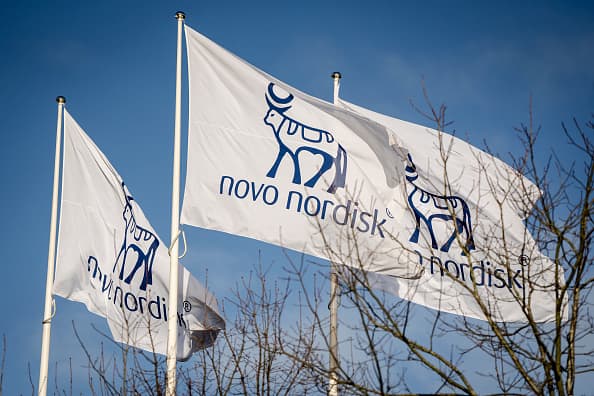A federal judge in Texas late Thursday rejected a bid by compounding pharmacies to keep making copies of Ozempic and Wegovy while a legal challenge over the shortage of those drugs unfolds. That came in response to a February lawsuit from a compounding trade group against the Food and Drug Administration’s determination that the active ingredient in those drugs, semaglutide, is no longer in shortage in the U.S.
Patients flocked to the cheaper copycats when Ozempic and Wegovy were in short supply over the last two years due to skyrocketing demand, or if they didn’t have insurance coverage for the costly treatments.
During FDA-declared shortages, pharmacists can legally make compounded versions of brand-name medications. Many telehealth companies, such as Hims & Hers
“We are pleased the court has rejected the compounders’ attempts to undermine FDA’s data-based decision that the shortage” of semaglutide is resolved, said Steve Benz, Novo Nordisk’s corporate vice president, legal and U.S. general counsel, in a statement.
“Patient safety remains a top priority for Novo Nordisk and the extensive nationwide legal actions we have taken to protect Americans from the health risks posed by illegitimate ‘semaglutide’ drugs are working,” he said, referring to the company’s more than 100 lawsuits against compounding pharmacies and other entities across 32 states.
On Thursday, U.S. District Judge Mark Pittman specifically denied the Outsourcing Facilities Association’s bid for a preliminary injunction that would have prevented the FDA from taking action against its members for making copies of semaglutide.
That decision upholds the FDA’s previous determination that the semaglutide shortage in the U.S. is over and means the FDA can now immediately go after so-called 503A pharmacies that are making compounded versions of semaglutide according to individual prescriptions for a specific patient.
Those pharmacies are largely regulated by states rather than the FDA.
The decision also means the FDA can start targeting federally regulated 503B pharmacies, which manufacture compounded drugs in bulk with or without prescriptions, after May 22. The agency’s actions can include product seizures and warning letters to pharmacies.
The decision on Thursday follows another win for Novo Nordisk. A different federal judge in Texas earlier this week ruled in favor of the drugmaker against a 503A pharmacy, MediOak Pharmacy, permanently prohibiting the business from marketing or selling compounded semaglutide.
Novo Nordisk and Eli Lilly
Eli Lilly has gone through a similar legal process with tirzepatide, the active ingredient in its weight loss drug Zepbound and diabetes treatment Mounjaro. The FDA declared the U.S. shortage of tirzepatide over last year, prompting the same compounding trade group to sue the FDA over the drug.
In March, a federal judge denied the compounding group’s request for a preliminary injunction on the FDA’s enforcement against its members for making copies of Mounjaro and Zepbound. The compounding group has appealed.
International: Top News And Analysis
Read the full article <a href="Read More” target=”_blank”>here.


